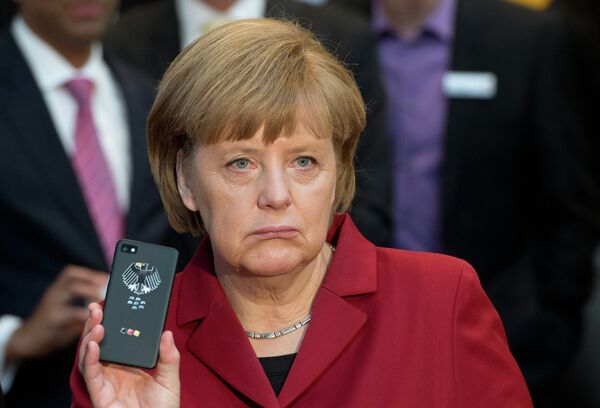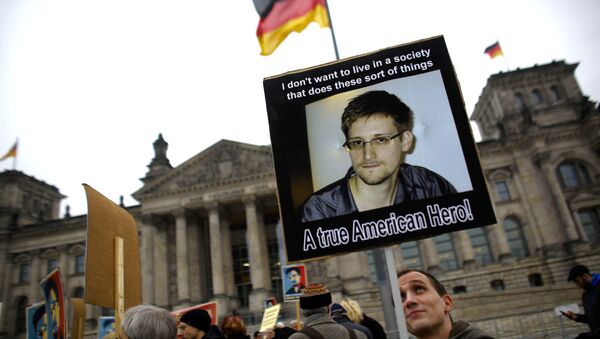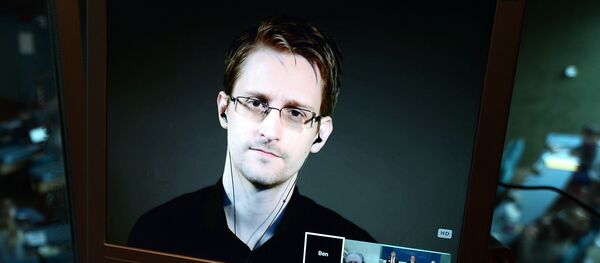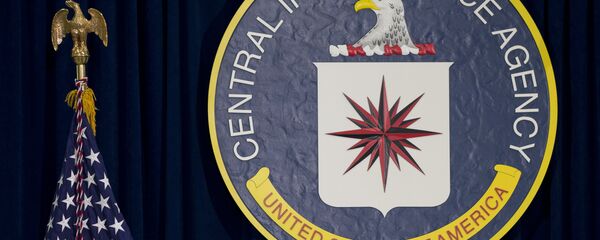It emerged that the intelligence services had collected and shared information on millions of ordinary people, as well as intercepted the communications of European politicians including German Chancellor Angela Merkel.
In light of the revelations, the German parliament launched an investigative committee in March 2014. Hans-Christian Stroebele, former chairman of the Alliance 90/Greens party in the Bundestag, told Sputnik Deutschland that there were many obstructions to the enquiry, which nevertheless managed to constitute some important facts.
Stroebele, the deputy of Greens representative Konstantin von Notz on the committee, said that "Edward Snowden was right, it is true that massive amounts, millions, of telecommunications in Germany and from Germany were intercepted and recorded," Stroebele said.
"A large part was available to the NSA; 40,000 NSA selectors [search terms] were used. These search terms should not have been used, because the Federal Intelligence Service (BND) was also of the opinion that they are not permitted."
Despite that, the BND helped the NSA to gather data on German citizens in return for US monitoring technology. The BND itself used 3,000 selectors to spy on German telecommunications, Stroebele said.
The enquiry also brought to light some new information about the US military's controversial use of the Ramstein military base in Germany for drone operations in other countries, and the extent of the German government's knowledge of Ramstein's operations.
"We also learnt other things, for example that Ramstein was used to conduct killer drone operations in Africa," Stroebele said.
Last December, Berlin finally admitted after parliamentary questioning from Die Linke that the US Air Force uses the base to carry out drone strikes and extra-legal killings. The US had confirmed Ramstein's major role in its drone operations to the German government in August 2016. As US drone operations violate German and international law, the revelation has led for calls to close the base.
"The White House itself has once again emphasized: 'We never talked about a no-spy agreement,' and Pofalla announced that five weeks before the Bundestag elections. That took the wind out of the sails and the whole NSA affair was no longer important in the Bundestag elections," Stroebele said.
The Green politician echoed complaints by two of the committee members, Christian Fliesek (SPD) and Martina Renner (Die Linke), who complained that the committee's work was obstructed by the government.
Berlin "constantly intervened to stop up having access to files for a long time, which we had to then laboriously and repeatedly request again," Stroebele said.

"The government did a lot to make the work of the committee ineffective."
For political reasons, the committee didn't hear evidence from the most important witness to the spying, Edward Snowden. In addition, German Chancellor Angela Merkel refused to hand over her mobile phone for examination, making it impossible to investigate how the handset was tapped.
Committee chairman Patrick Sensburg (CDU) complained that the committee had concerned itself too much with the activities of the German BND. Stroebele said the work had to concentrate on BND documents "because we didn't receive any files from the NSA and also not a single witness. They simply blocked it."
The US secret service refused to answer questions from the German deputies.
"That is why there is still a lot to clear up, but we can only do that with the help of the Americans," Stroebele complained. He urged the German government to take a strong stand to protect German citizens and stop the US from breaking German laws, such as carrying out drone killings from Ramstein or wiretapping the German Chancellor.
"You have to tell them straight, and say to the US, 'you can't do this, it's a violation of our laws.'"





